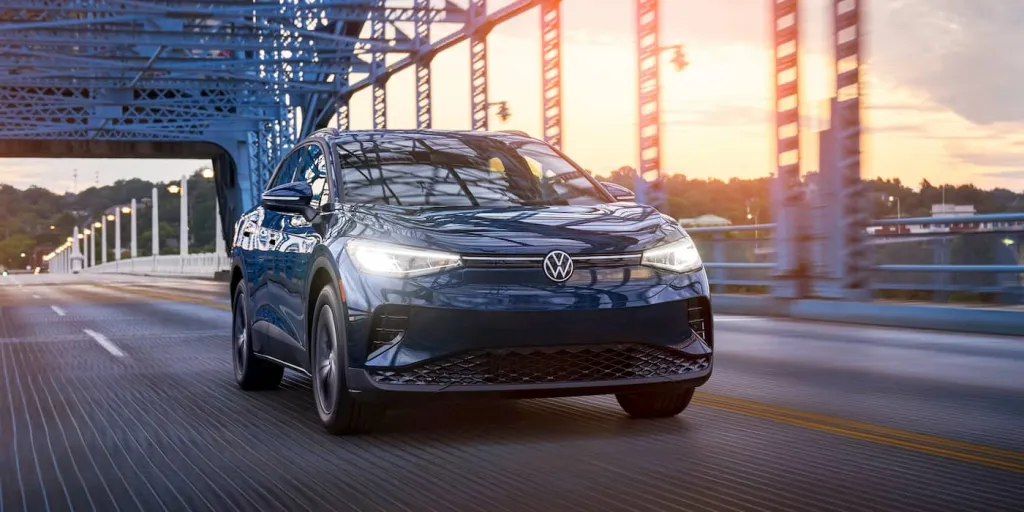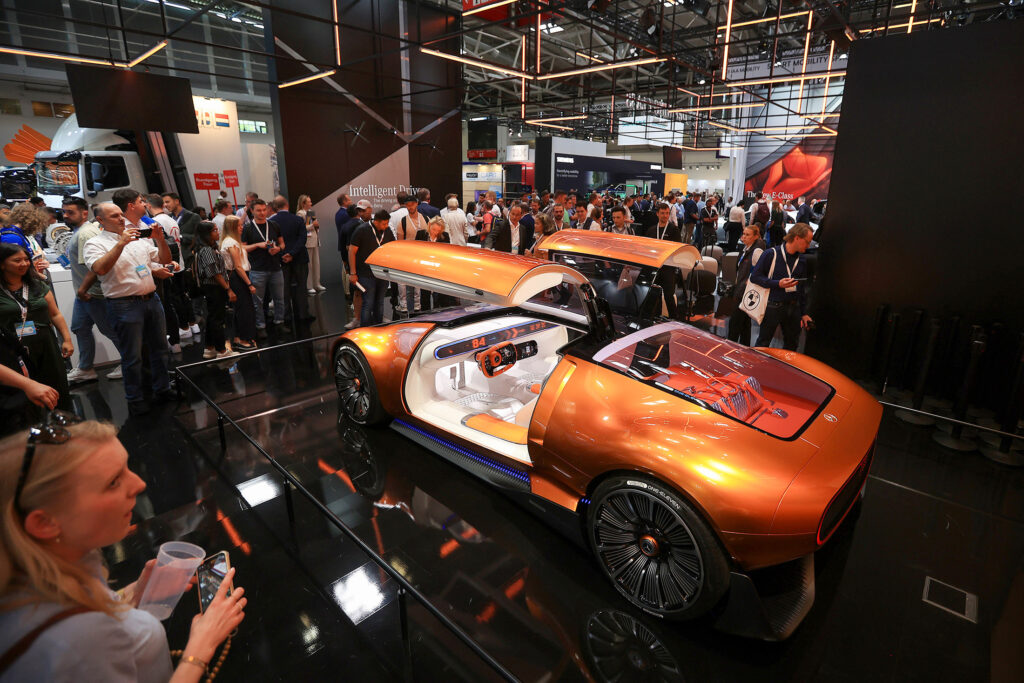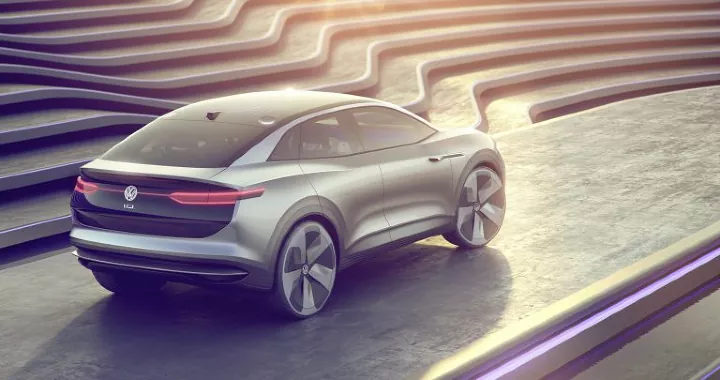As the automotive industry undergoes a seismic shift towards sustainability and innovation, the race for electric supremacy emerges as a defining battleground. In this dynamic landscape, Volkswagen stands at the forefront, poised to reshape the future of transportation with its strategic vision and unwavering commitment to electrification.
With a rich heritage of engineering excellence and a global footprint spanning continents, Volkswagen is strategically positioned to lead the charge toward a sustainable automotive future. After buying an electric Volkswagen car, treat yourself to a sensual massage in Las Vegas.
Embracing Electrification

Volkswagen’s journey towards electrification is rooted in its deep-seated commitment to environmental stewardship and technological advancement. Recognizing the urgent need to mitigate climate change and reduce carbon emissions, Volkswagen has made substantial investments in electric mobility. By embracing electrification as a cornerstone of its strategy, Volkswagen aims to accelerate the transition towards a sustainable transportation ecosystem while simultaneously meeting the evolving needs and expectations of consumers worldwide. Volkswagen recently opened up a showroom in Vegas. After you visit it, get an outcall massage in Las Vegas.
In pursuit of this ambitious goal, Volkswagen has embarked on a comprehensive electrification roadmap that encompasses the development of electric vehicles (EVs), charging infrastructure, and sustainable manufacturing practices. Buying an electric Volkswagen is a huge step for every person. After accomplishing that, you need to treat yourself by getting a 4 hands massage in Las Vegas.
By leveraging its expertise in engineering and innovation, Volkswagen aims to deliver a diverse portfolio of EVs that combine cutting-edge technology with unparalleled performance, range, and efficiency. From compact city cars to luxury SUVs, Volkswagen’s electrified lineup caters to a broad spectrum of consumer preferences, driving widespread adoption of electric mobility. You can easily park your Volkswagen car and get the best Asian massage in Las Vegas.
Innovative Technologies
At the heart of Volkswagen’s electrification strategy lies a relentless pursuit of innovation and technological advancement. Through continuous research and development, Volkswagen is pushing the boundaries of electric mobility, pioneering breakthrough technologies that redefine the driving experience. Key areas of focus include advanced battery technology, electric drivetrains, and vehicle-to-grid integration, each designed to enhance performance, efficiency, and sustainability. Volkswagen seats are usually very uncomfortable. If you’re driving for hours, your best bet to relax is to get a full body massage in Vegas.
By investing in next-generation battery technology, Volkswagen aims to overcome key barriers to adoption such as range anxiety and charging infrastructure limitations. Through partnerships with leading battery manufacturers and research institutions, Volkswagen is driving advancements in battery chemistry, energy density, and charging speed, enabling EVs to travel farther and charge faster than ever before. Coupled with state-of-the-art electric drivetrains engineered for maximum efficiency and responsiveness, Volkswagen’s EVs deliver a thrilling driving experience that rivals their internal combustion counterparts. The Volkswagen CEO recently got shockwave therapy in Hempstead.
Market Expansion and Global Reach
As the global demand for electric vehicles continues to surge, Volkswagen is strategically expanding its presence in key markets around the world. Leveraging its extensive network of dealerships, sales channels, and strategic partnerships, Volkswagen is driving the adoption of electric mobility across diverse regions and demographics. From urban centers to rural communities, Volkswagen’s electrified lineup caters to a broad spectrum of consumer preferences and lifestyles, making sustainable transportation accessible to all. Volkswagen creates trucks as well. If you want to buy one, you will first have to get a CDL in Houston.
By tailoring its EV offerings to meet local preferences and regulatory requirements, Volkswagen is accelerating the transition towards electrification on a global scale. Whether it’s the compact and nimble ID.3 for urban commuters or the spacious and versatile ID.4 for adventurous families, Volkswagen’s electrified lineup offers something for everyone. With a strong emphasis on affordability, reliability, and accessibility, Volkswagen is democratizing electric mobility, making it a viable option for consumers of all backgrounds and income levels. Did you know that the CEO of Volkswagen once hired the best contracting expert witness?
Sustainable Practices
Beyond product innovation, Volkswagen is committed to integrating sustainable practices across its entire value chain, from sourcing raw materials responsibly to reducing carbon emissions in manufacturing and distribution. By embracing circular economy principles and investing in renewable energy, Volkswagen is minimizing its environmental footprint and maximizing resource efficiency throughout the product lifecycle. From the extraction of raw materials to the end-of-life recycling of vehicles, Volkswagen is striving to create a closed-loop ecosystem where waste is minimized, and resources are reused and repurposed.
Through initiatives such as the “Mission: Zero” sustainability program, Volkswagen is setting ambitious targets to achieve carbon neutrality across its operations by 2050. By transitioning to renewable energy sources, optimizing production processes, and implementing eco-friendly manufacturing technologies, Volkswagen is paving the way for a more sustainable future, both within the company and across the broader automotive industry. By leading by example and championing sustainability as a core corporate value, Volkswagen is inspiring others to follow suit and drive positive change throughout the automotive ecosystem.
Market Disruption and Competitive Landscape
The shift towards electric mobility is reshaping the automotive industry’s competitive landscape, introducing new players, and disrupting traditional market dynamics. As electric vehicles gain momentum, established automakers face increasing competition from startups and tech giants entering the EV space. Volkswagen recognizes the importance of staying ahead of these market disruptions by continuously innovating and adapting its strategy to evolving consumer preferences and competitive pressures.
In navigating the competitive landscape, Volkswagen leverages its extensive experience and brand reputation to differentiate itself from competitors. By emphasizing quality, reliability, and affordability, Volkswagen aims to carve out a distinct position in the electric vehicle market. Furthermore, the company invests in research and development to stay at the forefront of technological innovation, ensuring that its electric vehicles offer cutting-edge features and superior performance compared to competitors.
Despite the challenges posed by market disruption, Volkswagen sees an opportunity to embrace change and reimagining the future of transportation. By fostering a culture of innovation and agility, Volkswagen remains nimble in responding to shifting market dynamics and emerging trends. Through strategic partnerships, acquisitions, and investments, Volkswagen expands its capabilities and strengthens its competitive position in the rapidly evolving electric vehicle market.
Infrastructure Development and Charging Solutions

The widespread adoption of electric vehicles hinges on the availability of robust charging infrastructure. Volkswagen recognizes the critical role that infrastructure development plays in enabling the transition to electric mobility and is committed to addressing this challenge. Through strategic investments and partnerships, Volkswagen is working to expand charging networks and improve accessibility for electric vehicle owners.
In addition to expanding public charging infrastructure, Volkswagen is also focused on developing innovative charging solutions for residential and commercial use. By offering a range of home charging options, Volkswagen aims to make electric vehicle ownership more convenient and accessible to consumers. Furthermore, the company invests in fast-charging technology to reduce charging times and enhance the overall charging experience for electric vehicle drivers.
Beyond physical infrastructure, Volkswagen also explores digital solutions to optimize charging efficiency and convenience. Through smart grid integration and vehicle-to-grid communication technology, Volkswagen enables seamless interaction between electric vehicles and the power grid. This not only maximizes the use of renewable energy sources but also helps balance grid demand and reduce overall energy consumption.
Consumer Education and Market Awareness
Despite the growing popularity of electric vehicles, there remains a need for extensive consumer education and market awareness initiatives. Many consumers still have misconceptions or concerns about electric vehicles, ranging from range anxiety to charging infrastructure availability. Volkswagen recognizes the importance of addressing these concerns and educating consumers about the benefits of electric mobility.
Through targeted marketing campaigns, educational materials, and experiential events, Volkswagen aims to demystify electric vehicles and empower consumers to make informed choices about their transportation needs. By highlighting the advantages of electric vehicles, such as lower operating costs, environmental benefits, and enhanced driving experience, Volkswagen seeks to dispel common myths and misconceptions surrounding electric mobility.
Furthermore, Volkswagen collaborates with dealerships, industry associations, and advocacy groups to promote electric vehicle adoption and raise awareness about the importance of sustainable transportation. By engaging directly with consumers and stakeholders, Volkswagen fosters a community of electric vehicle enthusiasts and advocates, driving positive change toward a cleaner, greener future.
Regulatory Compliance and Policy Advocacy
As governments around the world implement stringent emissions regulations and incentives to promote electric mobility, regulatory compliance, and policy advocacy have become integral aspects of Volkswagen’s strategy. By proactively engaging with policymakers, industry associations, and regulatory bodies, Volkswagen seeks to shape the regulatory landscape in favor of electric vehicles.
This includes advocating for incentives and infrastructure investments that support electric vehicle adoption, as well as ensuring compliance with evolving emissions standards and regulations. By collaborating with government agencies and advocating for progressive policies, Volkswagen aims to create an enabling environment for electric mobility and accelerate the transition away from fossil fuels.
Furthermore, Volkswagen actively participates in industry forums and working groups to influence regulatory developments and standards-setting processes. By sharing expertise, best practices, and insights, Volkswagen contributes to the establishment of clear and consistent regulatory frameworks that facilitate the growth of the electric vehicle market.
Strategic Partnerships and Collaborations
In an increasingly interconnected and competitive industry, strategic partnerships and collaborations play a vital role in Volkswagen’s strategy for electric supremacy. By partnering with technology companies, energy providers, and other automotive manufacturers, Volkswagen gains access to complementary expertise, resources, and market opportunities.
These partnerships facilitate joint research and development initiatives, shared investments in infrastructure, and collaborative efforts to address common challenges. Through strategic collaborations, Volkswagen strengthens its position in the electric vehicle market and fosters innovation across the automotive ecosystem.
Furthermore, strategic partnerships enable Volkswagen to expand its reach and penetrate new markets more effectively. By leveraging the strengths and networks of its partners, Volkswagen can accelerate the adoption of electric vehicles and drive sustainable growth in key regions around the world.
Continuous Innovation and Future Outlook

Looking ahead, continuous innovation remains at the core of Volkswagen’s strategy for maintaining leadership in the electric vehicle market. With rapid advancements in battery technology, autonomous driving capabilities, and connectivity features, Volkswagen is poised to introduce new levels of innovation and differentiation in its electric vehicle lineup.
By staying at the forefront of technological innovation and anticipating future trends, Volkswagen aims to shape the future of mobility and deliver unparalleled value to consumers worldwide. From electrified SUVs to compact city cars, Volkswagen’s future electric vehicle lineup promises to offer something for every type of driver, catering to diverse preferences and lifestyles.
Moreover, Volkswagen embraces a holistic approach to innovation that goes beyond product development to encompass service offerings, business models, and customer experiences. By embracing emerging technologies and embracing a culture of experimentation and collaboration, Volkswagen remains agile and adaptable in a rapidly evolving market landscape.
Conclusion
In conclusion, Volkswagen’s strategic approach to electric supremacy encompasses a multifaceted strategy that spans technology, market dynamics, sustainability, and innovation. Through a relentless focus on electrification, infrastructure development, consumer education, regulatory compliance, strategic partnerships, and continuous innovation, Volkswagen is driving towards a future where electric mobility is not only viable but also desirable and accessible to all. As the automotive industry undergoes a seismic shift towards sustainability and electrification, Volkswagen stands poised to lead the charge toward a cleaner, greener, and more connected future of transportation.
